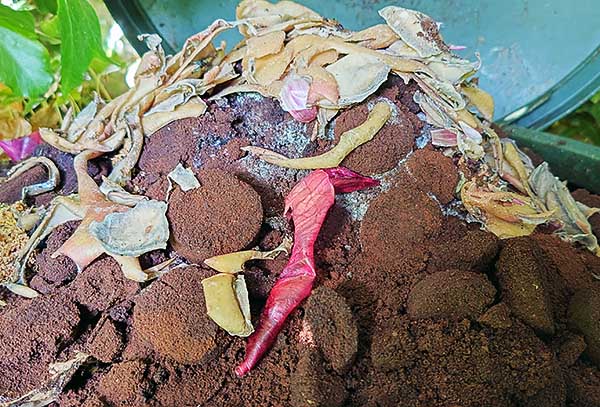Why you must be clear, accurate and substantiated to avoid greenwashing
Communicating responsibly and avoiding the risk of greenwashing can be difficult. But often it isn’t that complicated, it just requires the right level of awareness, consistency and rigour in your communications. Failing to manage that can mean snatching defeat from the jaws of victory – turning a potentially positive sustainability feature into a negative news story.

As someone both keen on coffee (surely an improvement to every morning?) and also a fierce critic of greenwashing, two recent rulings by the UK’s Advertising Standards Authority (ASA) caught my interest.
In rulings published 30 April 2025, two coffee brands both fell foul of the ASA’s guidelines.
What happened?
The two companies had very similar claims banned for very similar reasons.
They both post online, paid-for ads about their products, and both (in the eyes of the ASA) failed to provide sufficient clarity about their claims, leading to a risk that they would mislead consumers. Both companies had their ads banned.
The claims and the issues
Dualit – “Dualit Coffee Bags – Compostable Coffee Bags” and further text stating: “Discover Dualit’s compostable coffee bags – café-quality ground coffee in a bag”.
The ASA challenged whether the claim “compostable coffee bags” was misleading.
Lavazza – “Lavazza … New Eco Caps”. Further text stating “Lavazza A Modo Mio Eco Caps: the coffee shop taste in compostable capsules for your home. Good as usual, feels even better! The taste of Lavazza Coffee in a Compostable Capsule […] Your Espresso at Home”.
The ASA found that the claims “compostable capsules” and “compostable coffee bags” were misleading.
In both cases the ASA stated that the ads gave the impression that the bags/capsules could be composted at home, when in fact they could only be composted in an industrial setting.
In reply to the rulings, both Dualit and Lavazza stated that their products were certified to the European Standard EN13432, indicating that they were designed to break down in an industrial composter and that in neither case were the ads intended to be interpreted as a claim relating to home composting.

Is disposal the whole story though?
No, it’s not.
For green claims, it’s critical to look at the whole life cycle of a product or service. In the cases of the coffee companies, their claims related specifically to disposal. That’s because single-use coffee capsules provide user convenience (compared to other coffee preparation formats) at the expense of additional single-use packaging – which has become the focus of criticism as being wasteful and polluting. One tactic for reducing some of the environmental impact of the packaging is to deal with the disposal-related impacts.
However, the problem illustrated here shows that a focus purely only disposability can still give rise to greenwashing challenges.
If consumers are confused by messaging and put products that are only suitable for commercial composting in their home composting, they are unlikely to reach the temperature and humidity required for them to break down sufficiently. This can lead to partially broken-down residues, which in some cases may also be toxic.
While many households collect compostables for composting by councils and municipalities, this is by no means universal, and some local authorities explicitly state that they cannot process such materials. In those situations, they request that compostable plastics are placed in a waste bin – thereby negating environmental benefits of possible compostability.
If a consumer places compostable plastic (i.e. PLA [polylactic acid]) as used in Dualit’s coffee bags in their domestic recycling collection, this can contaminate the recycling stream. Therefore, putting your used products in the right place is important and context-specific. In this scenario a simple marketing message might be found to be misleading.
What can we learn from these rulings?
These rulings, for the main part, simply reconfirm existing guidance relating to green claims. But they also tell us something about focus and intent for the ASA ,and provide some wider lessons.
- The ASA considers the ‘average consumer’s expectation’ when making its assessments (and the CMA similarly). In these two cases it determined that a claim of compostable might reasonably be assumed to mean at home for a consumer product used in a domestic setting. Both coffee companies disputed this.
- These cases reinforce the ongoing requirement for advertisers to consider what a typical consumer will understand – and to ensure that their ads are clear and accurate given this level of understanding. This represents a higher bar than arguing that ‘strictly speaking it’s accurate’.
- In the Dualit case, the ASA noted that the ad used 132 characters in an ad format that allowed 270 characters – leaving “sufficient space within the ad format to correctly inform about the nature of the product and how it should be disposed”. This can be construed as a dig at the frequently used defence (from other brands) that ad formats do not provide sufficient space to fully describe or substantiate claims.
- The ASA considered that need for industrial composting was a ‘material’ consideration and that therefore claims relating to composting required further qualification.
- Care is required when a manufacturer is developing solutions (in this case single-use product disposal) ahead of the universal availability of supporting infrastructure. This shouldn’t restrain innovation, but does requires a more nuanced challenge for marketeers in their communication of product features.
- In both cases, the claims were, interpreted narrowly, accurate. However, they were both found to have been insufficiently clear that specific conditions/circumstances were relevant – i.e. that compostability was only achievable in industrial facilities, not at home.
- In both cases the products were certified to a recognised European Standard (EN13432). This will have cost both companies money and effort to achieve (and maintain). This could provide a provable benefit – but in these cases the communications were deemed to have failed in that.
- The ASA was clear, consumer-facing product claims on compostability must either provide evidence that they are compostable at home or alternatively, must provide clairy on the disposal process.
- This situation was entirely predictable and avoidable. Green claims guidance stresses that claims should be clear and easily understandable with any relevant conditions or caveats explicit. In recent years north American coffee giant Keurig received large fines for a similar situation – claiming coffee pods were recyclable when often local facilities did not exist, meaning that for the consumer the products were only recyclable in principle but not in practice.
Navigating simple messaging in a complex world
Genuine sustainability/environmental impact reductions, particularly in single use consumer products, can be difficult to achieve. The coffee companies have no control over the facilities provided by local authorities and little control over consumer awareness and understanding of issues. However, they do have control over their communications and a responsibility to ensure that they can understood accurately. In these cases, the ad bans could have been avoided by following ASA and CMA guidance on green claims. Claims should be clear, accurate and substantiated. Here the ads failed the first two hurdles, and the two brands will have both taken a reputational hit.

 What is Responsible Communication?
What is Responsible Communication?